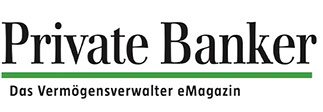

Value Kolumne von Hans Peter Schupp
4. AUGUST 2023
From the post office to outer space – growth is not indefinite
A P/E ratio of over 200! Who invests in companies with such a high valuation? How can this be justified? With fantasy, more fantasy and much more fantasy. Fantasy for unregulated growth, indeed for virtually infinite growth. And for wealth without end.
Nvidia traded temporarily at a P/E ratio of over 200
The stock of U.S. high-tech chip developer Nvidia traded temporarily at a P/E ratio of 220 – apparently, artificial intelligence is the driver behind this. Microsoft is not as highly valued, but with the commercialization of Open AI and similar applications, the fantasy here is also slowly skyrocketing.
Speaking of the sky. The next driver could be space stocks. Unregulated – instead of „The sky is the limit“, it seems that „The sky has no limit“ applies today! You just have to be fast to define your positions. With this growth will pick up, then customers demand will rise and finally there another gold-rush will kick in.
But how will this end? It’s worth taking a look back at the past, when other innovations captured the imagination of investors. The postal service, for example, or the railroad, the telephone or the Internet. In the end, they were all became pure commodities!
The post office – from monopoly to commodity
Let’s take the postal service. In the 16th century, the von Thurn und Taxis family started the first postal route. They transported the emperor’s courier mail – and then rapidly expanded the network until they had finally established a monopoly. The growth potential was enormous. The world was at the dynasty’s feet, because whether the postal rider transported one letter or 20 – the costs were the same, but the revenues were incomparably higher. Today, one would say: a perfect example of „economies of scale“, with the corresponding growth.
And today? What has become of it? Basically, the post office is a regulated business, where the letter carrier delivers the letters every day. And as far as prices are concerned, they can’t be raised just like that. The regulator has a hand in that. In addition, there is strong competition from the Internet, and a lot of correspondence bypasses the post office via e-mail. Today, the postal service has become a pure commodity.
The railroads: from extreme growth to an over-regulated means of transportion
The railroad is another example. In Germany, the first line ran from Nuremberg to Fürth in 1835. The tracks stretched for six kilometers. Five years later, there was already a net of 500 kilometers. And in 1850, 15 years later, the tracks were extended to over 5700 kilometers. Growth without end. A true success story.
Transportation was not only limited to people, but also goods were now shipped by railroad, without any further need for a river network. So it was not only cities that were located on a river that were supplied, but also others in the back country. This was now possible thanks to the railroad.
And today? Today, the railroad is an overregulated and, at least in Germany, highly loss-making state-owned enterprise. Would a P/E ratio of over 200 have been justified in 1835? Perhaps. Today, there is not even a positive P/E ratio any more. Losses are difficult to calculate with this ratio.
Pure fantasy vs. a sense of reality
Conclusion: there is now indefinite growth. With a P/E of say 250, earnings will have to keep doubling over the next eight years to justify the valuation. And that with ever faster product life cycles. You need a lot of fantasy to imagine something like that.
Frankly, we prefer reality over pure fantasy. The average P/E ratio in our Contrarian Value Euroland fund is a moderate 6.5, which gives us a return of a good 15 percent per year. A feel-good factor that we don’t want to miss.
Translation for convenience only!
The author: Hans Peter Schupp is a board member of FIDECUM AG and portfolio manager of the Contrarian Value Euroland fund.

